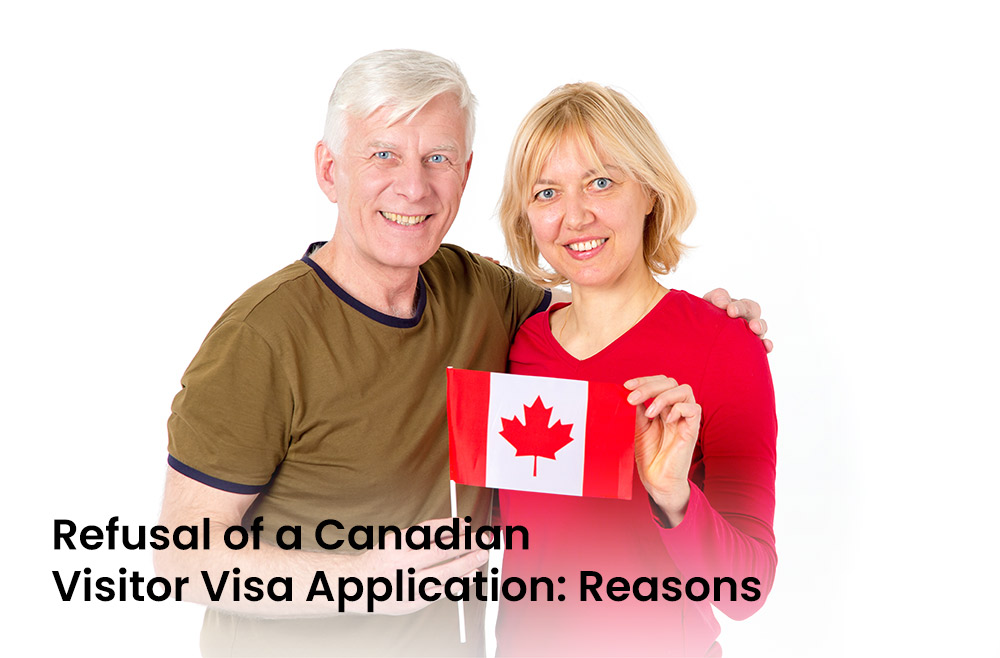
by Immilaw Team | Jan 8, 2024 | Canada
International students studying in Canada might sometimes face situations where their Canadian Designated Learning Institution (DLI) might delay the start of their program to the next semester. Students might need to postpone starting their studies due to reasons like a family emergency or requiring additional funds.
If a student intends to postpone the commencement of their studies in Canada, seeking permission from their educational institution is essential. The student must formally request permission to defer their enrollment, whether prompted by personal circumstances or due to delay from DLIs. This process involves contacting and following the institution’s specific guidelines and procedures for deferred enrollment.
Let us have a look into the different options available for international students to defer their enrollment.
1. Resuming Studies Within a Specific Period
Upon deferring their enrollment at a Canadian DLI, international students can resume their studies either at the start of the subsequent semester or within 150 days from confirming their deferred enrollment, whichever occurs earlier. This option allows them flexibility, selecting the earlier timeframe between these two options, to resume their academic pursuits within the specified period.
2. Changing Immigration Status in Canada
Another option to extend their stay in Canada involves pursuing a change in their status. This entails transitioning from their current international student status to visitor status or worker status within the country.
How can international students shift to visitor status in Canada?
When international students in Canada opt to defer their enrollment, pathways are available to extend their stay in the country. One such option involves applying for a visitor record, providing an opportunity for continued presence in Canada. International students requiring a visitor record must apply at least 30 days before their current student status or study permit expires.
A visitor record and a visitor visa are different; they serve distinct purposes and have varying conditions. A visitor visa (also called a Temporary Resident Visa) is a necessary document for travel and entry into Canada, specifically for citizens of certain countries. It permits entry into Canada for a duration of up to six months. On the other hand, a visitor record extends the stay duration in Canada. These records are issued by the Canada Border Services Agency (CBSA) or Immigration, Refugees and Citizenship Canada (IRCC).
A visitor record generally allows temporary residents to extend their stay in Canada as visitors, workers, or students without requiring specific permits. However, holding a visitor record does not guarantee re-entry into Canada.
A visitor visa indicates a specific date by which the visa holder must enter Canada, not the expiration date for their stay in the country. This date is the deadline for the visa holder’s arrival in Canada. In contrast, the expiry date on the visitor record indicates the deadline for the holder’s departure from Canada.
How can international students shift to Worker status in Canada?
International students have the option to transition to worker status through either an Employer-specific or Open work permit.
Employer-specific work permits allow the holder to work with a particular employer, location, and timeframe.
Conversely, an open work permit provides the flexibility to work for nearly any employer in Canada, provided they meet the eligibility criteria and are not listed as ineligible.
Eligibility criteria vary based on whether the individual resides inside or outside Canada. For further details on eligibility, application procedures, and subsequent steps, visit the Government of Canada website.
3. Departing from Canada
Another alternative option for international students deferring their enrollment in Canada is to depart from the country. This is a common choice, especially for those who are certain they will not return within the stipulated timeframe or need more clarity on when the situation prompting their deferral will be resolved. By opting to leave, students can manage their circumstances elsewhere without worrying about their studies in Canada. For any deferral instances, students must acquire an updated letter of acceptance directly from the Designated Learning Institution (DLI). This updated letter confirms and acknowledges the deferred enrollment, ensuring clarity and compliance with the institution’s records.
In conclusion, deferring enrollment for international students in Canada offers diverse options, such as resuming studies within a timeframe, changing status, or opting to leave the country. Each option requires considering personal circumstances and adhering to Canadian regulations. Awareness of these choices enables students to handle unforeseen situations while managing their academic journey in Canada efficiently.
Every student’s situation is unique, so seeking guidance from your institution’s international student services or immigration authorities is advisable. Keeping updated with reliable sources will assist in navigating the complexities associated with deferring enrollment and leaving Canada as an international student.
If you need assistance or further clarification regarding deferring enrollment, contact us at ImmiLaw Immigration Law Professional Corporation. At ImmiLaw, our experienced immigration lawyers specialize in Canadian immigration law and provide expert guidance on matters related to enrollment deferral and student immigration.
Feel free to contact us for personalized assistance and inquiries.
Book an appoinment
Read To Know: Easiest Routes For International Students To Canadian PR

by Immilaw Team | Jul 13, 2022 | Canada
A Canada Tourist Visa is an official document connected to your passport and issued by a Canadian Visa Office. It is proof that you have fulfilled the conditions for temporary residency in the nation (either as a visitor, a student, or a worker). A Temporary Resident Visa is the official name for it (TRV).
There are two types of Visitor Visas for Canada:
Single entry visa: Single entry visas are generally issued for a period of up to 6 months
Multiple-entry visa: Multiple-entry visitor visas are granted for up to 10 years or one month before the expiry date on the passport or re-entry visa (whichever date comes first).
The applicant can apply for the Canadian Visitor Visa in two modes. One method is through the online portal, and the other way is paper-based process. First, you can visit Canada as a temporary visitor to visit family and friends for a holiday or business.
Free Online Immigration Assessment
The visa requirements for a Canada tourist visa are:
- A valid passport
- Proof of good health
- No criminal history or immigration-related convictions
- Proof of funds to sustain you during your stay
- The planned duration of your stay and temporary residence
- You must provide proof of intent to return to your home country, showing that you have ties such as a job, family bonds, financial assets, and home.
Canadian Visitor Visa (TRV) application Refusal
Section 179(b) of IRPR states,
Issuance – An officer shall issue a temporary resident visa to a foreign national if it is established that the foreign national follows an examination.
(b) will leave Canada by the end of the period authorized for their stay as per Division 2 [Conditions on Temporary Residents]
Failure to meet the provisions of Section179(b) of the Immigration and Refugee Protection Regulations (IRPR) is the main reason for refusing a visitor visa application to Canada.
1. Refusal based on travel history
When the applicant has not traveled outside the home country or has traveled less frequently than others, the Immigration officer may refuse the application. The application can also be rejected when the applicant has extensive travel history.
Based on your travel history, I am not convinced that you will leave Canada at the end of your temporary resident status, as required by paragraph 179(b) of the IRPR.
2. Refusal based on the purpose of the visit
Sometimes the visa is refused because the applicant has not explicitly stated the purpose of coming to Canada or the purpose mentioned is tricky. The goal must be clear and not ambiguous, like if the applicant said that they were coming to visit their friend. However, if the applicant’s purpose is to visit their friends for their marriage and includes a copy of the invitation. The goal is clear, and in such a situation, the officer will believe that the purpose is genuine.
Based on the purpose of your visit, I am not convinced that you will leave Canada after your temporary resident status, as required by paragraph 179(b) of the IRPR.
3. Refusal based on Family Ties
This is a common ground for the refusal of the visa application. If the applicant has family in Canada, this can work against the applicant as it is one reason they may not wish to return home at the end of their stay in Canada. Therefore, the applicant must explain the nature of his ties in Canada and his home country.
Because of your family links in Canada and your country of residence, I am not convinced that you will depart Canada after your temporary resident status, as required by paragraph 179(b) of the IRPR.
4. Refusal based on Immigration Status
To apply for a visa to Canada, the applicant must have legal status in the country where they are located when they apply. Proof of the applicant’s legal status in their country of residence at the time they make the application must be included when they apply for a visa to Canada; otherwise, the application will be refused.
Because of your immigration status in your country of residence, I am not convinced that you will leave Canada after your temporary resident status as specified in paragraph 179(b) of the IRPR.
5. Refusal Based on Financial Status and Personal Assets
This refers to the visa’s financial status and funds available to the applicant. The application must include financial information and all the documents supporting funds available to the Canadian citizen or permanent resident who has invited the applicant and the applicant himself. You must prove to the immigration officer that you have sufficient money to support your trip to Canada. It is necessary to prove that you have enough funds to pay for the ticket to visit Canada, the cost of tourism, meals, lodging, gifts, and the return ticket to the country of residence.
Because of your assets and financial situation, I am not convinced that you will depart Canada at the end of your temporary resident status as specified in paragraph 179(b) of the IRPR.
6. Refusal Based on Current Employment Situation
Since it is essential to show sufficient funds to support the visit to Canada, it is necessary to show that the applicant is employed in the country of residence. A job in the visa applicant’s home country is one of the most substantial ties they can show to their country of residence as proof that they will return when their trip to Canada is over.
Because of your existing job situation, I am not convinced that you will depart Canada after your temporary resident status, as required by paragraph 179(b) of the IRPR.
7. Refusal based on length of Proposed Stay
The visitors who enter Canada can stay up to a maximum of 6 months unless they are advised otherwise by Canada Border Services Agency when they arrive. The “length of proposed stay” is a prevalent ground for refusal as asking for the maximum amount of time allowable to the visitor in Canada is not considered reasonable by the officers and appears to them that it is likely that the applicant will not leave Canada on time.
Because of the length of your anticipated stay in Canada, I am not convinced that you will leave Canada at the end of your temporary resident status, as required by paragraph 179(b) of the IRPR.
8. Refusal Based on Employment Prospects in the Country of Residence
Applicants for a visa need to show that they have the money to pay for their trip to Canada and that they are employed as proof of where the funds required to support the visitors come from. Overall, unemployment in the applicant’s country of residence negatively impacts the visa application. If an immigration officer believes that an applicant is likely to lose their job as a result of traveling to Canada or that they are unlikely to be able to get a job if they are not currently working, employment prospects in the country of residence can be used as grounds for refusal of the visa application.
Because of your career prospects in your country of residence, I am not convinced that you will depart Canada after your temporary resident status, as required by paragraph 179(b) of the IRPR.
9. Refusal Based on Insufficient Funds, Income, or Assets
The visa application will be refused if the immigration officer believes that the applicant does not have enough funds to support his trip to Canada and return to the country of residence. Therefore, showing enough money to pay for their trip back to their home country is essential.
I am not convinced that you have adequate funds, including income and assets, to carry out your stated purpose in visiting Canada, support yourself while in Canada, and affect your departure.
10. Refusal Based on Insufficient Documentation of Income and Assets
The applicant must provide documentation demonstrating the availability of funds supporting their visit. The burden of proof is on the applicant to prove that they meet all the financial requirements for issuing a visa. For this, they must support their application with sufficient documents showing their access to funds/host’s income and assets.
You have not provided sufficient documentation to support your / your host’s income and assets.
11. Refusal Based on Misrepresentation of Documents
If the IRCC does not believe that the documents or information you have submitted are genuine, this alone is grounds for refusal of the application under section 40 of the Immigration and Refugee Protection Act for Misrepresentation. In such a scenario, the applicant will be barred from entering Canada for a certain period, and any future immigration applications will be viewed with significant doubt and distrust.
You have submitted documents that lack authenticity as part of your application. This has diminished the overall credibility of your submission. Usually, applicants do not understand the process, and there is a high rate of refusal when an individual applies on their own. Usually, when an application is submitted after one or more rejections, it should address all the previous refusal reasons; otherwise, an officer may refuse the application again. Therefore, it is advisable to consult a professional Immigration Lawyer to process your application and help you reach the desired destination smoothly.
Contact Us



